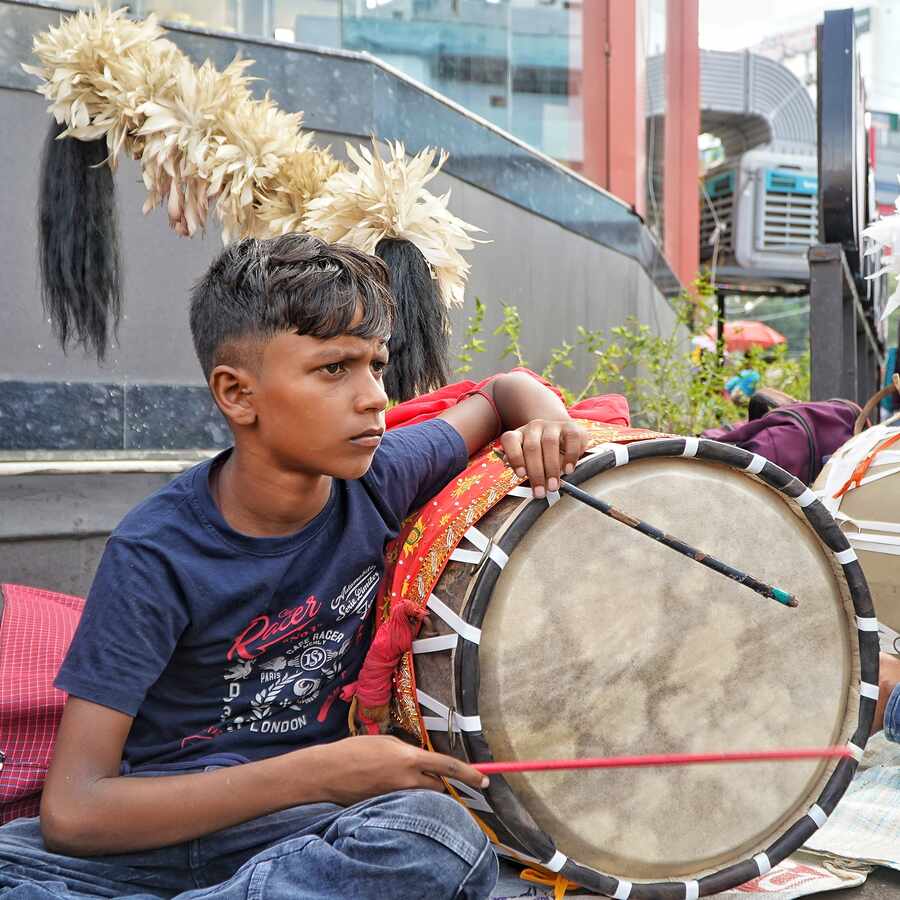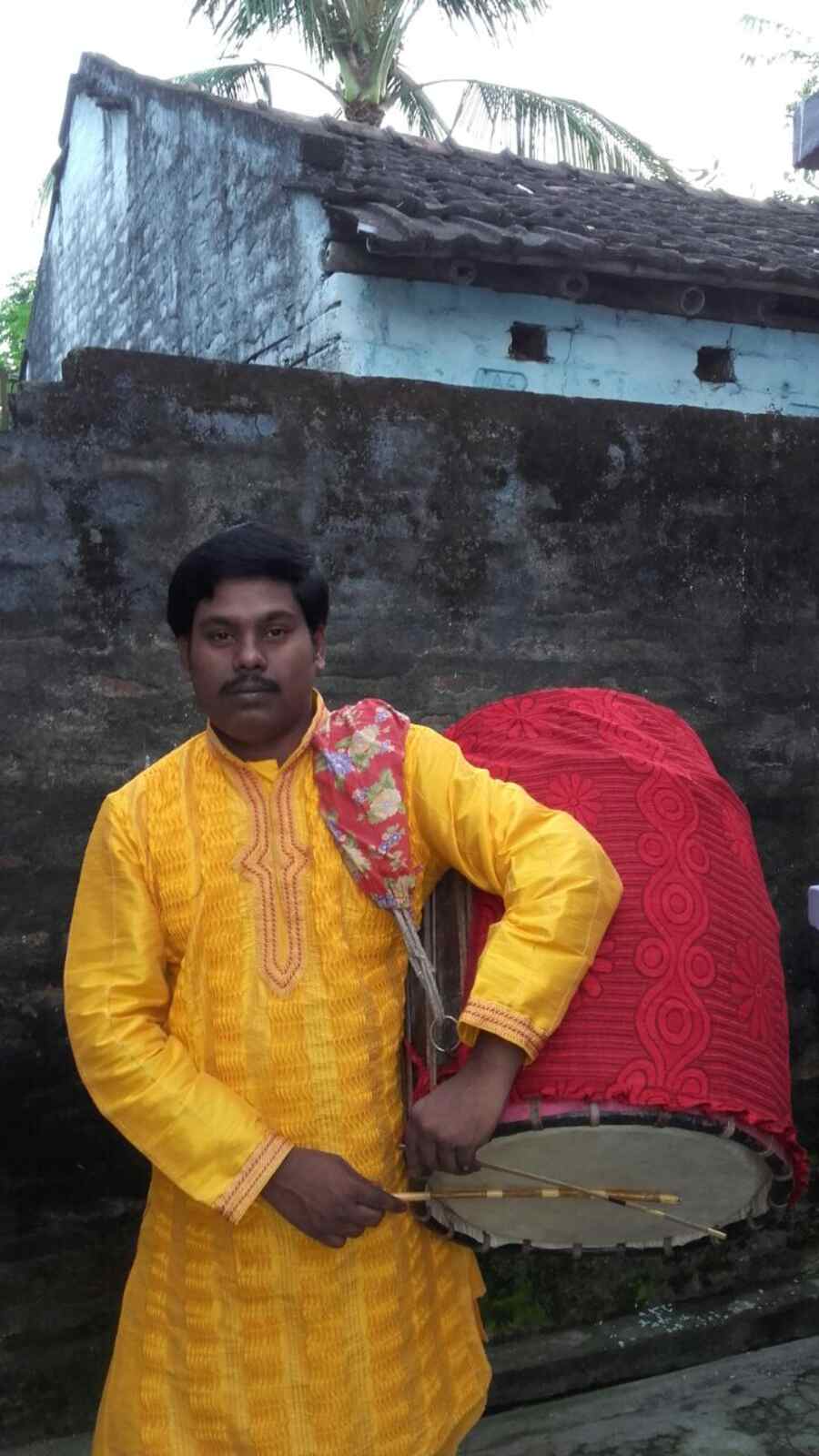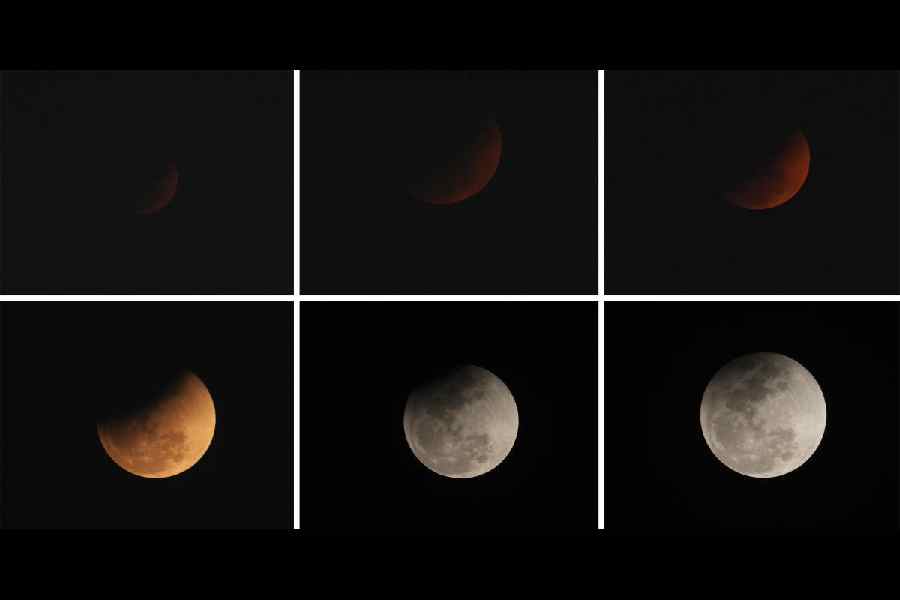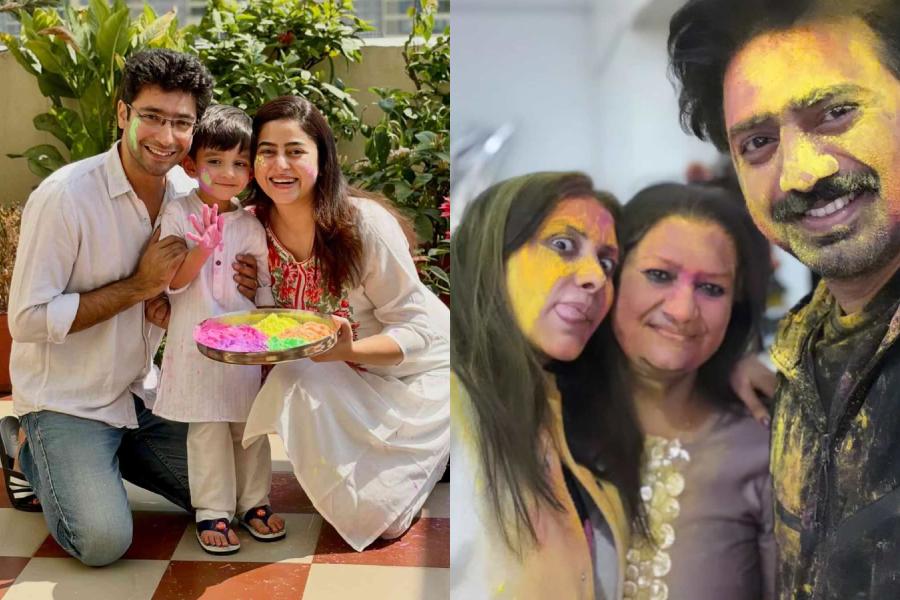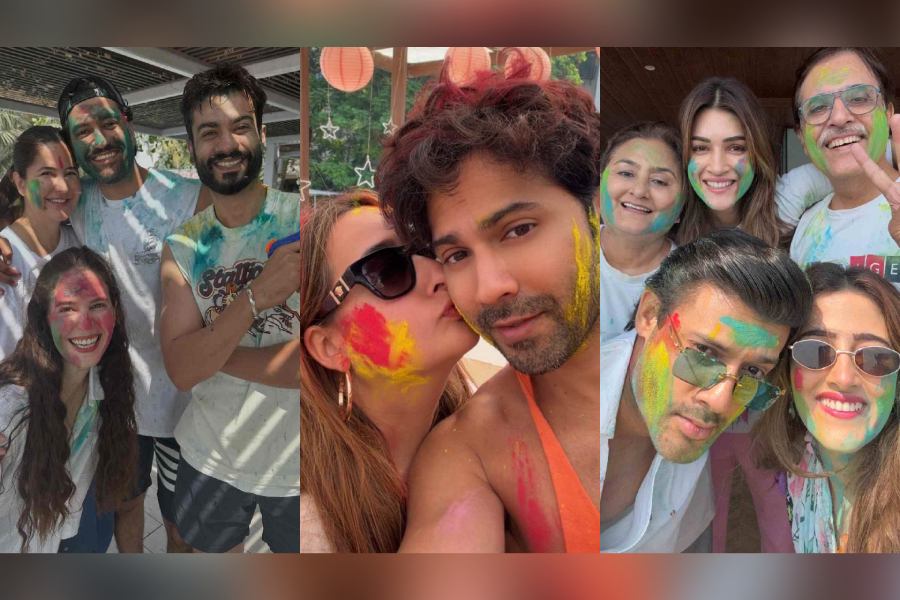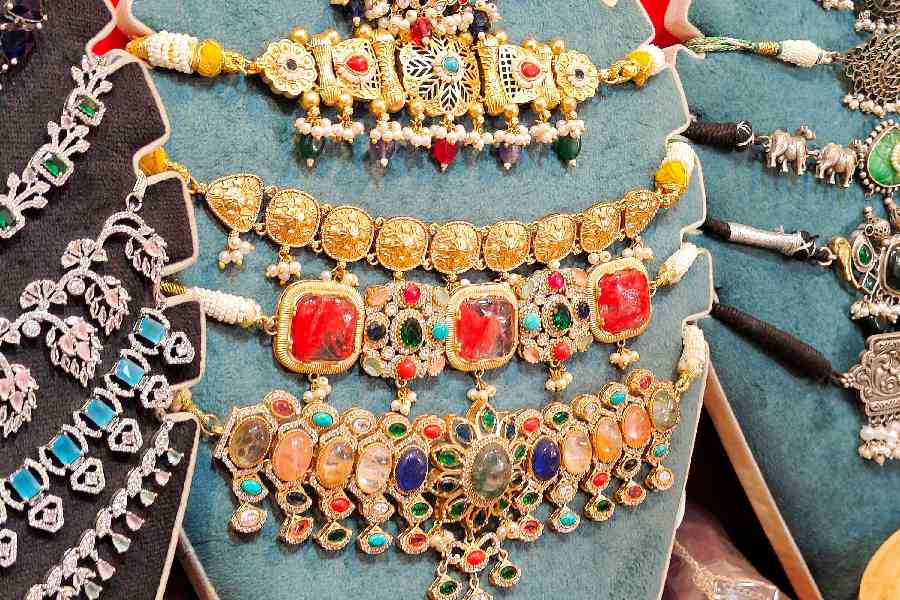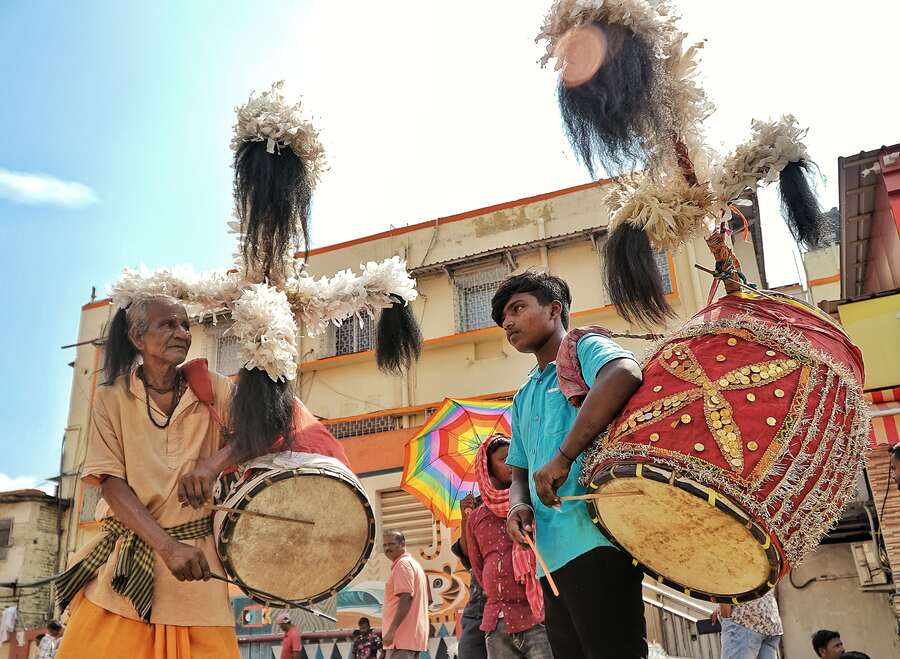
Sealdah has always been one of the favourite haunts for dhaakis hoping to secure a job at one of Kolkata’s biggest pandals. It also demonstrates the familial nature of the profession. (L-R) Sixty-five-year-old Chandi Das inspired his grandson Buddhadeb to pick up the dhaak two years ago at just 17 years old. The duo arrived in Sealdah from Birbhum. “I’ve been playing the dhaak for over half a century, since I was 12. I’m glad that my work has inspired my grandson too,” said Chandi with a smile
All photos by Soumyajit Dey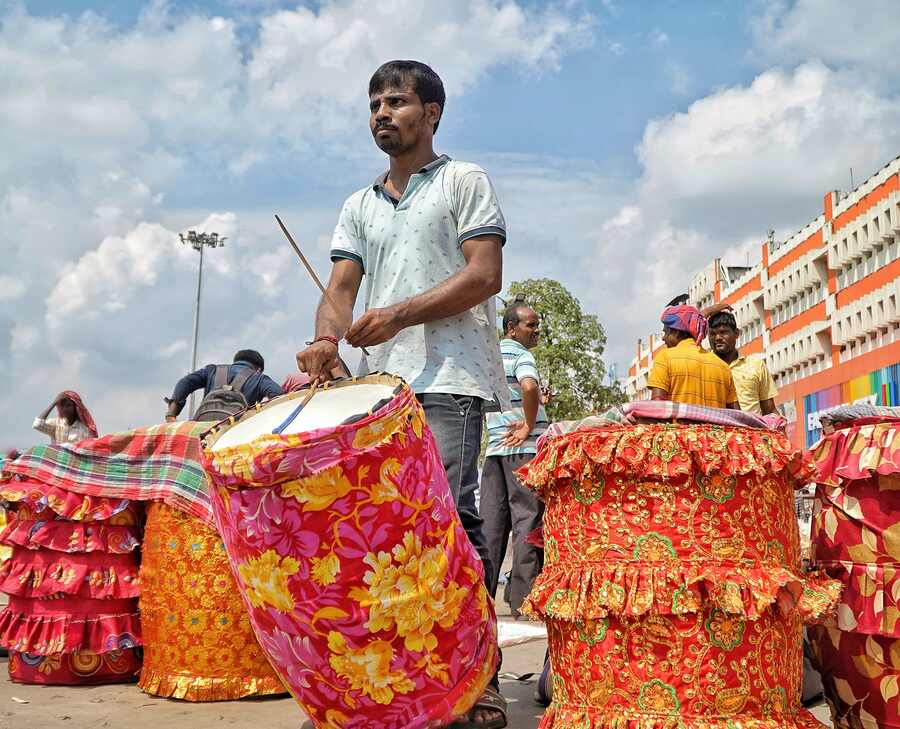
Several young dhaakis come to Sealdah with equal devotion and dreams in their eyes. It was here that 25-year-old Bablu Patar got the chance to play at the Belgachia Sadharan Durga Puja pandal last year. “Sealdah is the ultimate hope for most dhakis every year,” said the young man, who hails from Sabang, Paschim Medinipur
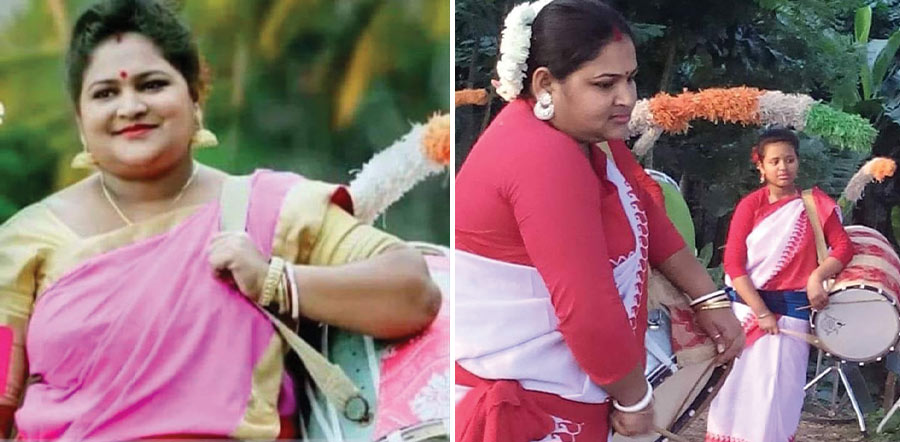
In some spaces, the dhaak has dismantled patriarchy. When the instrument entered Uma’s life nine years ago, it instilled a sense of power within her. “My family had no culture of women taking up music. Luckily, I was married into a family of dhaakis and it was my father-in-law who empowered me by teaching me how to play dhaak. That simple decision opened so many doors, and as a dhaaki, I have travelled to Goa, Assam and Silchar,” exclaimed Uma, a resident of Bidhan Pally, North 24 Parganas
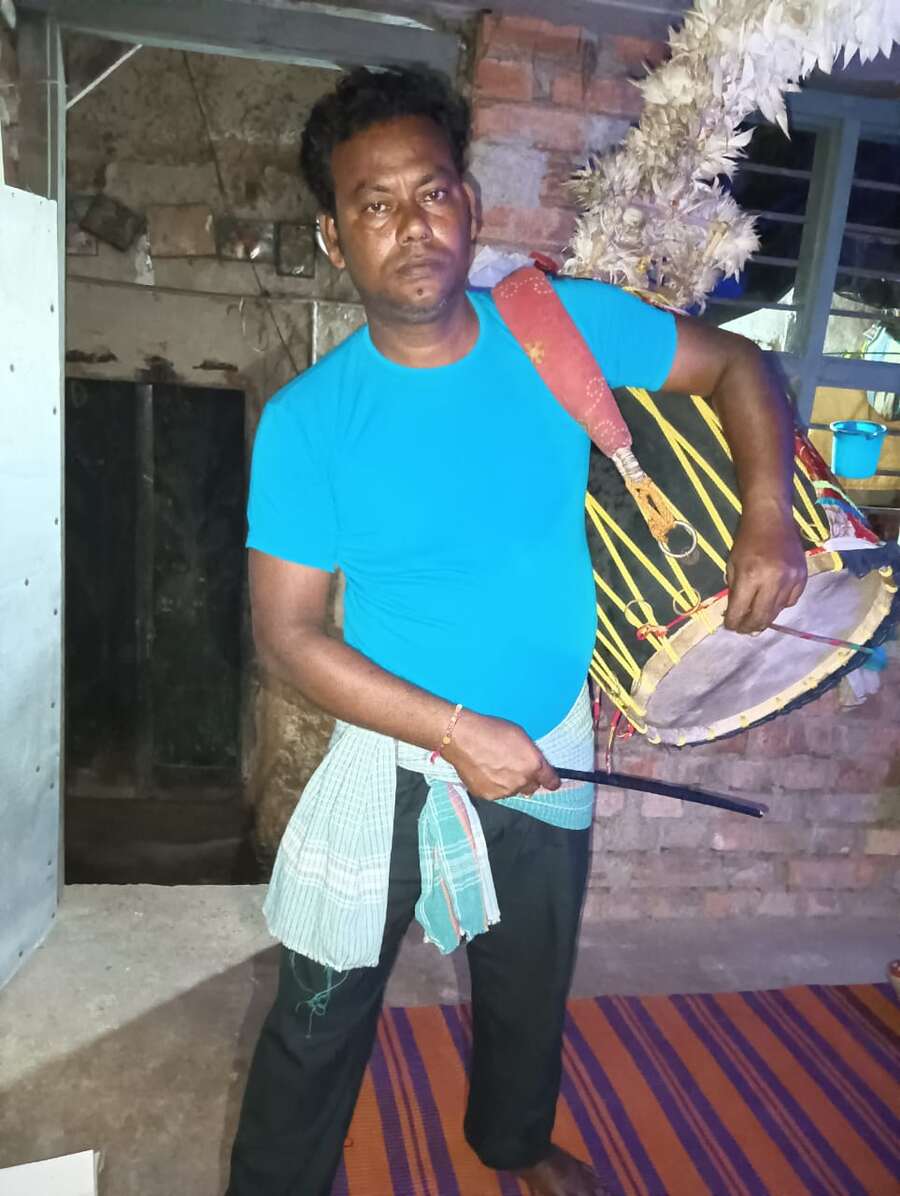
This sense of mobility is what appeals to Biswanath too, who is excitedly gearing up for his first trip to Mumbai after spending 22 years in the profession. “There’s nothing quite like Durga Puja in Kolkata, but I’ve seen the festival growing bigger in cities like Delhi and Bangalore. I’m very curious to see what the celebrations will be like in Bombay,” he beamed
